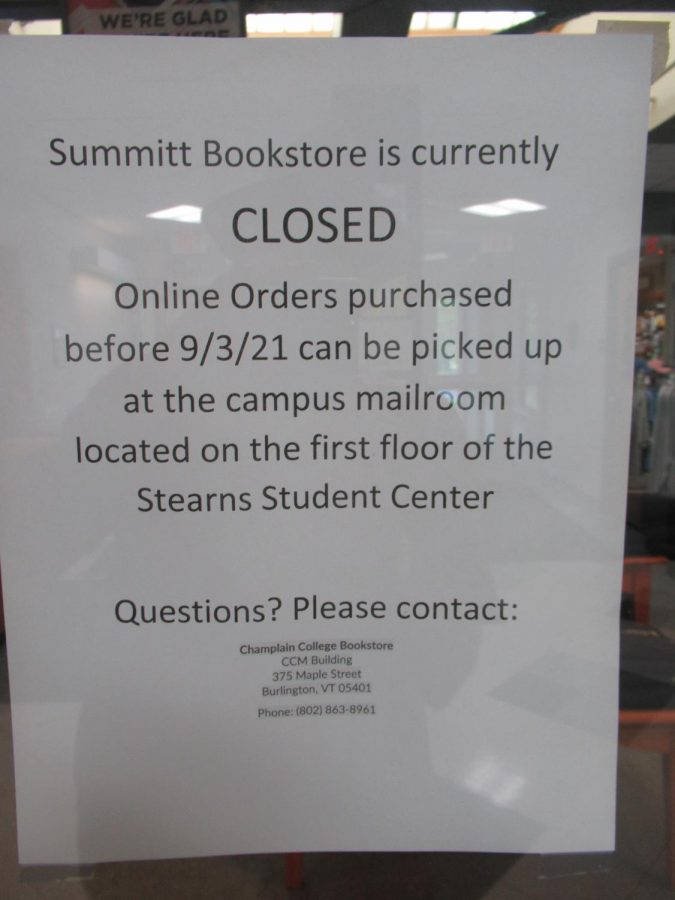Bookstore resumes five-day schedule
A sign noting the temporary closure of the NVU bookstore
Since the beginning of the semester, the NVU-Johnson’s Summit Bookstore has been open only sporadically as Follett, the corporation managing the store, scrambled to find a full-time replacement for the departed manager.
That situation has been resolved with the hiring of Tara Bosley, and the store is now back to its regular hours of 9a.m. to 3p.m. Monday through Friday.
Despite the bookstore’s recent dysfunction, the disruption in service did not derail the beginning of the semester, which raises this question: how have the Follett staffing issues impacted the students and faculty of NVU Johnson?
Many students and faculty seem to have hardly noticed the bookstore closure at all. Some professors even planned for students to not have their textbooks in the first week.
“Usually, I’m pretty flexible and try to find texts that are also available online for the first few weeks of a class,” said Professor of Writing and Literature Jensen Beach. “Students often struggle with financial aid settling, and this semester of course with the closures, et cetera. I try to accommodate so that we have materials to work with.”
Meanwhile, other instructors, like Professor of Writing and Literature Liz Powell, do not even use the bookstore for their class materials, but instead opt for resources that are online or available at external bookstores.
Websites like Amazon offer new, used, and rental textbooks at a fraction of the price that school bookstores like Follett charge. Options like these mean students are no longer constrained to only buying from their school’s bookstore.
With a growing popularity in eBooks and third-party sites like Amazon, the traditional school bookstore has started to become irrelevant to some students.
According to an article written by research analyst Melanie Hanson and published on EducationData.org, “when possible, nearly 66% of students will avoid buying course materials due to the steep prices.”
Students will sometimes share textbooks or find them illegally online in order to avoid paying the marked-up prices that bookstores charge.
Most professors appear to be aware of the concerning rise in textbook prices over the years, but do not always have a way to avoid requiring their students to use the texts.
“I think books should be available to students,” Beach said. “They’re too expensive. My goal is that all texts for all classes would be easy to find and available at realistic prices for our students, however that might look.”
Assistant Professor of Behavioral Science Emily Scott has a similar sentiment. “I’m using all open-source textbooks,” she said. “They’re all freely available online… We’re trying to move in a direction that’s open-sourced so students don’t have to buy textbooks on top of everything else.”
Shifts in market demands, the ascendancy of online outlets like Amazon, and changing strategies of many professors may eventually consign traditional college bookstores to the same realm of typewriters and blackboards: gone and increasingly forgotten.

First year student from Orlando, FL.
Working on her second bachelors.
Love poetry, anime, and her dog (mostly her dog).
Dreams of living in a van.




